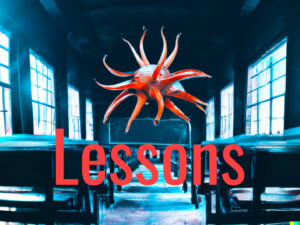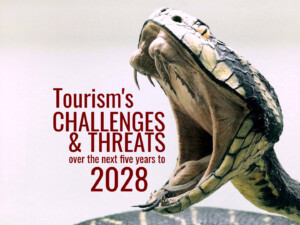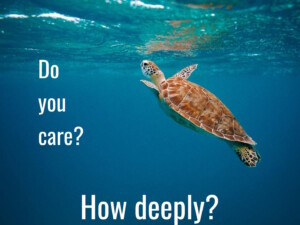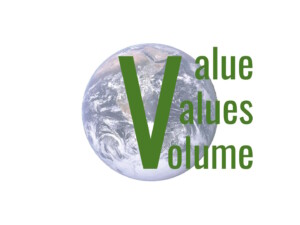What are tourism’s biggest challenges & threats over the next five years to 2027?
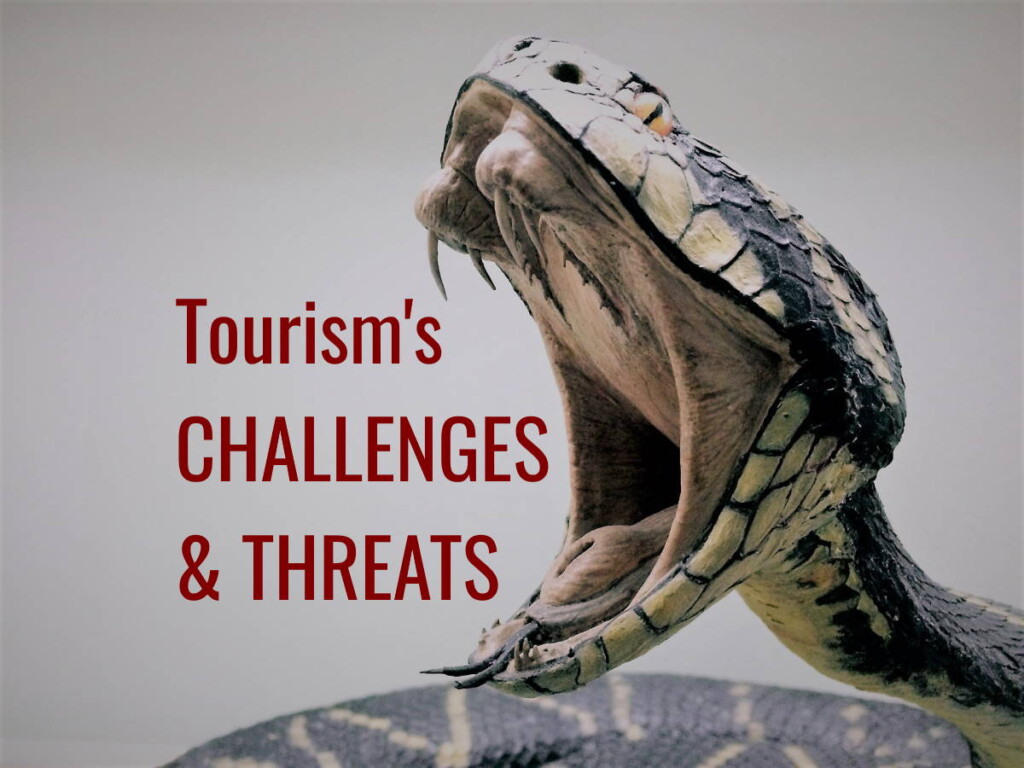
Over the next five years, what is the single biggest challenge or threat facing tourism where you work, or that you have identified through your research and study?
And what are the key strategies that your organisation, destination, or the industry at large should employ to overcome it?
It’s a “Good Tourism” Insight Bites question.
Your correspondent put the question to a range of travel & tourism stakeholders — “GT” Insight authors, “GT” Partners, and their invitees — and invited emailed written responses of no more than 300 words.
- Greg Bakunzi — Reviving community-led programs in Rwanda
- Saverio Francesco Bertolucci — Mass travel, undercapacity, and overtourism
- Sudipta K Sarkar — The low quality of tourism & hospitality employment
- K Michael Haywood — The ‘great resignation’ from tourism & hospitality jobs
- Edwin Magio — Climate change & climate action
- Wolfgang Georg Arlt — ‘The climate catastrophe’
- Jim Butcher — Transportation & energy
- Cato Holterman — Tourism is ‘highly sensitive to climate change’
- Yesaya Sandang — Reinventing tourism for ‘ecological integrity’ in Indonesia
- Peace Mutoni — Slower growth, new markets for Rwanda
- Shamiso Nyajeka — Poor governance in African tourism development
- Richard A Shepard — COVID, war, inflation … What now for the Black Sea?
- Issoufou Adamou Hassane — Social and economic stability in Niger
- Travis Clark — Success is a threat to Khao Sok, Thailand
- Jonathon Day — ‘Crossing the chasm’: Mainstreaming sustainability in tourism
- What do you think?
Previous “GT” Insight Bites:
- ‘Tourism is built on the backbone of white supremacy’. What do you think?
- Really, what’s the difference? ‘Sustainable tourism’ vs ‘regenerative tourism’
- Want a career in tourism? Important things you should know
- Diverse perspectives on travel & tourism and a fairer world
- Diverse perspectives on economic degrowth and tourism
- Diverse perspectives on visitor dispersion
Reviving community-led programs in Rwanda
Greg Bakunzi, Founder, Red Rocks Initiative for Sustainable Development & Red Rocks Rwanda
Red Rocks Initiative for Sustainable Development works hand in hand with its sister social enterprise Red Rocks Eco-tours Rwanda with a mandate to link tourism, conservation, and sustainable development in our community
As we look forward to the next years — continuing to mitigate the negative effects of the COVID-19 pandemic on our village as a travel destination — we are heavily challenged with a need to revive our community-led programs.
These programs were the sole income-generating activities for our local people prior to the pandemic.
We are committed to helping our community bounce back through a relief and response campaign.
The concept is based on the belief that we shall only be able to pioneer growth after the pandemic by putting people first; giving them programs and projects that offer skills training and job support, while meeting the needs of different groups of community members.
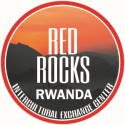
As we work with like-minded individuals to rebuild our society, we use approaches such as workshops and sensitisation campaigns to equip local people with the knowledge and opportunities that will allow gradual social and economic growth within the community.
We are optimistic that, by joining efforts with other community partners, we can return to normal lives as a tourism destination.
We believe that we can contribute to wider societal recovery based on the economic growth, jobs, and opportunities to transform lives that tourism offers, while ensuring our programs address the need for environmental and socio-cultural sustainability, conservation, and climate action.
Mass travel, undercapacity, and overtourism
Saverio Francesco Bertolucci, Administrative Assistant, Alcambarcelona, Spain
Due to globalisation and the experiential economy trend, tourism destinations risk suffering from undercapacity issues, leading to overtourism.
Post-pandemic data show alarming tourism arrivals trends, which do not follow the same pace of destination development.
In the short-run, many established and emerging destinations will have to face numbers of tourists that they will not be able to sustain nor accommodate
Nowadays, society expects a lot, and in a short time. Management and planning procedures are proven not to be as fast as society wishes and, therefore, mass travel, undercapacity, and overtourism are together going to present the main challenge for the majority of growing tourism destinations.
The low quality of tourism & hospitality employment
Sudipta K Sarkar, Senior Lecturer in Tourism Management, Anglia Ruskin University, UK
A pertinent challenge that is relatively less discussed across tourism circles is the quality of tourism employment.
Tourism jobs, across all sectors, are perceived to be ‘low-skilled’, less creative, repetitive, and less socio-economically rewarding.
Tourism corporations make profits comparable to their counterparts in other (high-profit) sectors like tech or finance, but that does not translate into jobs that are as lucrative or as esteemed as in those sectors.
The undesirability of the jobs available has been one of the main reasons for the grave shortage of hospitality staff in the current post-pandemic scenario.
Hospitality jobs are perceived to be less fulfilling, with long working hours, lower remuneration, and fewer opportunities for creativity and growth.
Many who lost hospitality jobs during the pandemic have moved to other sectors that can offer relatively more rewarding careers.
Therefore, there is an urgent need to transform tourism employment into a career that is more knowledge-based, innovation-oriented, and that requires higher-level skills and considerable levels of creativity and critical thinking, resulting in higher remuneration.
This requires tourism businesses to devise higher-quality, higher-value experiences and services that will require knowledge and creativity to produce and deliver.
Besides, employee work-life balance, particularly in the hospitality sector, needs to improve. Work-life balance in the hospitality industry falls short of other industries. And the lower salaries make things worse.
Moreover, tourism and hospitality is a highly volatile industry on the ‘front lines’ of society’s interactions with the wider world. As such it is vulnerable to disease, natural calamities, and violence (whether from terrorism, socio-political unrest, or random acts) that often leads to job losses.
Therefore, producing high-quality jobs that offer opportunities for creativity and self-actualisation, higher remuneration, and better work-life balance is crucial to allure and retain a talented workforce.
The ‘great resignation’ from tourism & hospitality jobs
K Michael Haywood, Professor Emeritus, University of Guelph, Canada
Climate crises, without a doubt. Inflationary pressures and the emergence of economic woes, well of course.
But, what happens when most operators throughout the world remain unable to attract or keep employees?
- Their ability to remain solvent in the immediate term becomes severely compromised.
- Their inability to avoid a deterioration in the quality of destination experiences threatens integrities and identities.
The ‘great resignation’ may bewilder, but when employees feel alienated and disenfranchised from their jobs, the effects reverberate and cascade throughout communities.
Rectification begins by digging to understand the origins of peoples’ discontent that is propelling nationalistic fervor, populist rhetoric, and intolerance of the ‘other’.
Blame, to a great extent, can be levelled at the adversities caused by the financialisation of economies and markets which exerts significant influence over both economic policy and corporate behaviour. What bevaviour?
- Behaviour that continues to prioritise short-term gains through demands to maintain a limited version of shareholder value.
- Behaviour that downplays desires to create functional, emotional, social, and life affirming value for key stakeholders — employees, visitors, and citizens — including delivery on ESG requirements.
- Behaviour that fosters toxic organisational cultures, a diminution of trust, disinterest in the ethics of care, and a surfeit of contractual relationships that ignore covenantal relationships with employees.
For aeons, touristic service work has had an image problem.
It’s not that the industry isn’t favoured for its job-creating potentiality, but that the material benefits earned from employment are expected to act as proxies for (what few consider to be) purposeful and meaningful work.
Pursuing and promoting the concept of ‘community shared value’ as the ethos of ‘good tourism’ may help. But, shared value will remain a non-starter until the ‘great resignation’ is annulled through the benevolent actions of covenantal leaders.
Climate change & climate action
Edwin Magio, Teaching & Research Assistant, Moi University, Kenya; Commonwealth Scholar, Leeds Beckett University, UK
A foray into the existing literature shows that tourism faces a number of challenges.
These include, but are not limited to, climate change, overtourism, COVID-19, poaching, wildlife loss, safety, and security.
Arguably, the biggest challenge that has become apparent in most destinations is climate change.
Climate change is a major threat to tourism.
Its impacts — such as erosion, storms, sea level rise, extreme temperatures, disruption of habitats, and damage to infrastructure — are already being felt in many destinations.
For example, changes in temperature and rainfall in the Maasai Mara National Reserve in Kenya are leading to a decrease in wildlife and vegetation.
Now is the time to act.
There is no stable future for the tourism industry if the climate crisis and all its disruptive consequences are not addressed.
So, if we want to create more prosperous and sustainable tourism, we cannot ignore it.
Organisations, destinations, and the whole industry must develop measures to reduce greenhouse gas emissions to deal with climate change for the benefit of our communities and planet.
There are already numerous reports, regulations, policies, legislation, recommendations, campaigns, and case studies on best practices for companies and communities to achieve the goals of the Paris agreement.
However, all of this must be implemented.
There may not be a better time to act than now.
‘The climate catastrophe’
Wolfgang Georg Arlt, CEO, Meaningful Tourism Center, Germany
There can only be one answer: The climate catastrophe.
Many players in the industry still dream of going back to the ‘good old times’ before the pandemic, when actually they were already characterised by discussions about overtourism and unnecessary pollution.
The climate catastrophe is changing the parameters for most destinations and service providers. For example:
- Many beaches and city centres will become too hot,
- Rivers will become unnavigable for cruises during their high summer seasons due to lack of water, and
- Ski resorts will face rising production costs and growing resistance to artificial snow …
… not in 2050, but within the next five years.
The rising cost of mitigating the economic effects of climate change will furthermore result in a decrease in global consumer spending power.
A key strategy of the Meaningful Tourism Center, besides providing training and consultation services, is the establishment of a Meaningful Tourism Index.
The Index will use a sixfold bottom line; measuring tourism by including all six major destination stakeholders: Visitors, the host community, employees, companies, governments, and the environment.
The Index is a major tool for destinations and companies to understand their position and to identify their strengths and weaknesses.
During the pandemic, everybody agreed that simply measuring arrivals or overnights is not enough; that key performance indicators (KPIs) have to be developed that measure the sustainability of tourism and its costs and benefits for all stakeholders.
Unfortunately, this has been all but forgotten. The UNWTO, for example, is measuring tourism’s post-COVID recovery by using only arrivals figures.
Transportation & energy
Jim Butcher, Reader, Canterbury Christ Church University, UK
The biggest challenge facing tourism is not really about tourism. It is the need for sustained high levels of investment in infrastructure and technology.
This will involve governments providing the conditions for individuals and businesses to thrive: modern airports, public transport systems, better roads, and affordable and reliable energy.
Enhanced mobility benefits tourism and improves lives and economic productivity. And investment in public transport makes cities liveable, ‘visitable’, and attractive for investment.
Yet the transport infrastructure in many places is crumbling.
Energy infrastructure is also key.
Rather than ‘net zero’ per se, our emphasis should be on the provision of cheaper, lower-emission, and low-pollution energy for all; to fuel development, especially in poorer countries.
We — the tourism industry included — currently find ourselves held back by the failure to invest in nuclear and renewables over decades.
To address this challenge we need democratic, interventionist states able to provide the investment and future orientation that individual firms on their own can’t.
We also need to challenge the declinism that tends to caricature development as an environmental threat or cultural imposition.
In the universities we’ve had the ‘cultural turn’, ‘moral turn’, and ‘local turn’. I propose a ‘future turn’; an orientation towards what could be rather than what is.
That sounds utopian, but I’d argue there is a disjuncture between the great technological and social potential for human advancement through sustained investment, and the pessimistic and inward-looking emphasis all too often apparent.
We have the potential for new energy and mobility revolutions. We have the prospect of hydrogen- and battery-powered aircraft, cheap light tram networks, new-generation nuclear, more efficient renewables, and improved battery capacity.
It is important for tourism, and much else, that higher and sustained investment in technology and infrastructure is prioritised.
Tourism is ‘highly sensitive to climate change’
Cato Holterman, Intern, Khiri Travel, Thailand
Tourism is an economic sector that is highly sensitive to climate change. Where I am now based, in Southeast Asia, climate change will be the biggest threat and challenge to the tourism industry over the next five years.

Natural disasters caused by climate change, such as heat waves, floods, storms, and hurricanes, are increasing, which leads to a decrease in the allure of a destination. Tourists may choose other holiday destinations that are not yet as significantly affected.
The climate change phenomenon cannot easily be controlled, but we can adopt adaptation and mitigation strategies to maintain long-term tourism activity.
Tourism destinations exposed to extreme weather and natural disasters have to be able to withstand impacts on infrastructure and disruptions to commercial activity. Furthermore they will require emergency preparedness measures to ensure visitors and hosts remain safe.
Inevitably, adaptation, preparedness, maintenance, and insurance costs will increase, which will reduce the profitability and viability of those destinations.
Tourism, on the other hand, is not only a victim. Tourism activities also emit greenhouse gases, which is one of the causes of global warming.
Strategies that tourism companies and destinations can employ to mitigate their impact involve reducing their energy and fuel use, including changing their modes of transportation.
As a company, Khiri Travel offers ‘slow travel’ tours; itineraries that are a minimum of 15 days that transport guests by boat, train, or car. Furthermore, the accommodation we provide our guests is selected based on social, cultural, and environmental factors.
Khiri’s guests stay longer in one place to experience more. At the same time they reduce the carbon footprint of their travels.
Reinventing tourism for ‘ecological integrity’ in Indonesia
Yesaya Sandang, Lecturer, Universitas Kristen Satya Wacana, Indonesia
In my view, in the next five years, tourism in Indonesia will have to reinvent itself for the sake of ecological integrity.
Throughout years of engaging with tourism stakeholders and researching the nexus of tourism and human rights, I have realised that the sense of crisis is yet to be intensified.
Despite all the parlance of sustainable tourism development used by government and industry, I have found that existing regulations and practice in the field display the gap between talking about sustainable tourism and doing sustainable tourism.
This corresponds with evidence from destinations such as Bali, Labuan Bajo, Malang, and Yogyakarta, where unchecked tourism infrastructure development comes at the expense of local communities’ access to water, and other environmental problems.
At the same time, studies have shown that the increase in Indonesia’s domestic and foreign tourism has raised concerns about income inequality and livelihood sustainability for local people.
A high level of regulation, as well as industry self-regulation, are essential strategies to mitigate environmental and social costs.
An assessment of the existing conditions and the broader impact on the environment should be a legal requirement prior to tourism development; and for tourism activities at every destination to be strictly monitored and controlled.
In addition, it is crucial to put the community at the heart of destination management. As rights-holders and environmental stewards, the visceral attachment local communities have to their environment can be a driving force to challenge and alter the course of unchecked tourism development.
Slower growth, new markets for Rwanda
Peace Mutoni, Intern, Red Rocks Initiative for Sustainable Development, Rwanda

As Rwanda went into lockdown, and international flights were grounded to stop the spread of the deadly coronavirus, the tourism sector became one of the hardest-hit sectors.
Tour operators, hotel owners, and suppliers of food, transport, and souvenirs all experienced significant losses.
Due to the impact of COVID-19 on the sector, over the next five years, tourism revenues will be below previously projected levels, and job growth will be slower, opportunities fewer.
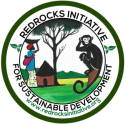
Furthermore, Rwanda tourism will be marketed in the East African Community (EAC) [comprising Burundi, Democratic Republic of Congo, Kenya, Rwanda, South Sudan, Tanzania, and Uganda] and will be added onto other itineraries with good tourism turnover, such as Kenya and Tanzania.
What we plan to do at Red Rocks is to equip our staff with the skills to improve their capacity, motivate them, and give them access to practical tools to help them apply their skills.
Poor governance in African tourism development
Shamiso Nyajeka, Lecturer, University of Zimbabwe, Zimbabwe
While governance has become a buzzword in the current sustainability discourse, it is probably one of Africa’s long-standing challenges.
Poor governance has hampered our progress on multiple fronts and tourism has not been spared.
As countries emerge from the devastating impacts of the COVID-19 pandemic, tourism has been identified as a potential driver of economic recovery.
With the fast-approaching 2030 deadlines for achieving (i) the universal agenda of the sustainable development goals (SDGs) and (ii) the UNWTO Agenda for Africa 2030 — tourism for inclusive growth — the next five years are crucial in restoring the gains that were reversed by the pandemic.
Africa’s potential to attract tourists can hardly be doubted given the continent’s abundant tourism resources.
Attaining sustainability, inclusive growth, and resilience, on the other hand, is no mean feat, especially in the absence of good governance. Reaching these milestones largely depends on how destinations and their resources are governed.
Inconsistent policies, corruption, lack of transparency, political power struggles, and exclusion of local communities are critical threats to tourism development in Africa. Without significant improvements in governance, tourism’s envisaged role in steering the continent’s development will remain a fantasy.
Looking ahead to the next five years, our governments need to seriously consider getting back to the basics as far as governance is concerned. We must adopt home-grown solutions that have successfully sustained our traditional societies for centuries.
For us, the Bantu people (mostly occupying southern and eastern Africa), Ubuntu provides an ideal foundation for building good governance.
Embracing the philosophy’s principles, such as respect, fairness, empathy, community, and selflessness, can help to restore essential values for preserving our humaneness and repositioning the region on a more sustainable trajectory of tourism development.
COVID, war, inflation … What now for the Black Sea region?
Richard A Shepard, Trustee & CEO, Sustainable Rural Development International, UK
There is no single challenge, but climate change tops the list because it impacts everything else, including health.
Although the effects of COVID have declined, the 2022 travel recovery remained below pre-COVID levels and elevated health as a challenge for the sector.
The Russian invasion of Ukraine severely impacted our own Black Sea travel program, but it also has a worldwide effect; political instability, inflation, and an economic slowdown.
Rising energy and fuel prices and inflation contribute to higher travel prices and each are significant challenges.
I suggest it is nearly impossible to identify challenges beyond 2024 if for no other reason than we are bad at identifying them one year in advance.
For us, trying to think beyond 2023 and establish clear plans is difficult, at best.
So, what are our plans?
During the off-season we, together with our partners, will create more in-depth, extended experiences grounded in our commitment to sustainability.
To prepare for unforeseen crises we will create a robust risk management process to reduce uncertainties of actions, categorising risks — natural disasters, political issues, terrorism, health and economic crises — to inform business planning.
Coupled with continued commitment to the UN SDGs, we feel that sector threats can be significantly mitigated.
Finally, our overall objective is to address the needs of our customers — travellers and community stakeholders — with an emphasis on creativity, such as taking visitors on the trip before they ever get there with more visual content to help capture attention.
We will differentiate our form of sustainable tourism, explaining the benefits for our community partners to travellers.
Practically, our booking system process will be more flexible.
By keeping the interests of both customer groups at the forefront, we hope 2023 will see improvements in the quality of the offer and the traveller.
Social and economic stability in Niger
Issoufou Adamou Hassane, Co-founder & President, Tourism & Local Development (TOLD) Niger
The major challenge for tourism in Niger over the next five years is the return of security to the country’s tourist destinations.
The main cause of the deterioration of the security situation in Niger stems from the lack of employment opportunities for women and young people, especially those living in rural areas.
The lack of jobs has made young people easy prey for criminal organisations, which rely on them to commit the most despicable acts that tarnish the image of the country among international tourist customers.
To meet this challenge, the NGO TOLD intends to implement initiatives to create jobs and contribute to social and economic stability in the country’s tourist destinations.
Our actions will focus on training local people on the preservation and enhancement of Niger’s natural and cultural heritage, the development of community cultural events, the economic empowerment of women in tourism, the creation of heritage clubs in schools, and the development of youth entrepreneurship in tourism and heritage.
Our vision is to ensure that people are better educated about their heritage in order to act positively for its preservation and promotion.
Such an approach will create jobs and wealth for the communities, promote the return of security, and contribute to the revival of sustainable tourism in Niger.
Success is a threat to Khao Sok, Thailand
Travis Clark, General Manager, Anurak Community Lodge, Thailand
The greatest threat is not if tourism will return to pre-COVID levels but rather if/when it will destroy what makes places like Khao Sok, Thailand so special.

Khao Sok boasts one of the oldest and most scenic national parks in Thailand; beauty to escape to.
Big corporations have always had Khao Sok in their sights but have held off due to a lack of infrastructure in the area. Given the current state of tourism there is a real concern that they may enter the region regardless.
While larger businesses increase tourism, which seems like a net positive, however real estate development, highways, and retail outlets tend to come with them.
Each new development encroaches on the natural environment and the community atmosphere that make Khao Sok desirable.
In the 1970s, Patong in Phuket was a tropical beach paradise. Fifty years later it is laden with hotels, bars, restaurants, shops, stalls … The beach is an afterthought.
Khao Sok has managed to contain tourism to a handful of small businesses with roots in the destination. Whether Khao Sok is destined to fall into a pit of ‘success’ only time will tell.
To combat overdevelopment, hotels like ours are cooperating to spread awareness of how to operate sustainably.
Here at Anurak Lodge we work with global organisations like Travel Life to ensure that we meet minimum standards, as well as with local authorities and partners on developing a green zone and setting building standards.
We also pursue our own projects. For Rainforest Rising, for example, we replace invasive plants with indigenous flora.
Overall, tourism is good. It provides jobs and income for people. And we welcome growth and expansion if it is done sustainably.
The people and environment that attract tourists to Khao Sok need to be looked after. That responsibility starts with us.
‘Crossing the chasm’: Mainstreaming sustainability in tourism
Jonathon Day, Associate Professor | Graduate Program Director, White Lodging — J.W. Marriott, Jr. School of Hospitality and Tourism Management
For an idea that has been around for over 50 years, and is appealing to policymakers, academics, and even businesspeople, sustainability still has a long way to go to become standard operating procedure.
The challenge of mainstreaming sustainability in tourism must be the priority today; and for the immediate future.
Researchers in the diffusion of technologies, policies, and business activities call this “crossing the chasm”. This term refers to the great leap required for an idea or technology to move beyond ‘earlier adopters’ and be embraced by the majority.
Even as we acknowledge there is still work to be done at every level of tourism — by destinations, by businesses and enterprises, and by travellers — I remain optimistic that we are further ahead on the journey than it first appears. A couple of reasons:
- Tourism is a complex system, and frequently members of the system are unaware of progress being made by other system members. As a result, there is a sense that anyone doing the work of sustainability is an outlier, forging a path that others have yet to follow. The evidence is mounting that this is no longer true.
- Sustainability requires more than completing a single task, but attention to a portfolio of activities. Some of those activities are more typically practised than others, but the truth is that sustainability practices are more common than they are given credit for.
One way we help “cross the chasm” is to show that social and environmental sustainability actions are not niche activities but common across the sector.
Failing to adopt sustainability means that you are the outlier, not the majority.
What do you think?
What do you think? Share your own thoughts in a comment below. Or write a deeper “GT” Insight. The “Good Tourism” Blog welcomes diversity of opinion and perspective about travel & tourism, because travel & tourism is everyone’s business.
Featured image (top of post): Tourism’s challenges and threats. Cobra image by P Schreiner (CC0) via Pixabay.
















